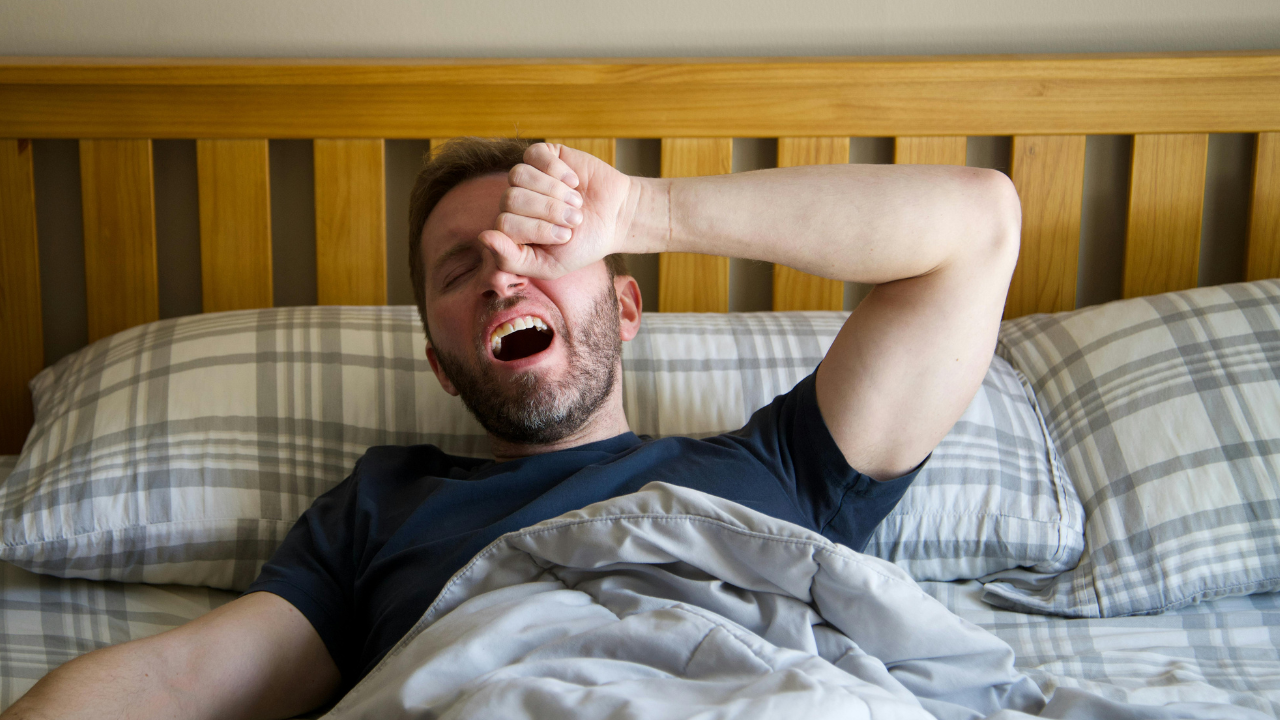Are These 5 Hidden Habits Quietly Wrecking Your Health?
May 13, 2025
Are These 5 Hidden Habits Quietly Wrecking Your Health?
It's 2025.
We have robots trying to take over the world.
Injections that starve people voluntarily.
And apps that tell you when to water your plants (my fiancée loves it).
The world feels like a wild carnival. Equal parts thrilling and downright bonkers. But nothing crashes the party faster than poor health.
And the real kicker?
It’s often the stealthy, everyday habits you barely notice that do the real damage.
So, let's uncover the first one.
Sitting most of the day
We were not designed to be sat on our butts all day.
The human body is a work of art, but for most people these days, that work of art looks like something I would draw, and trust me, I'm shit at drawing!
We were meant to run and jump. Instead, most sit and slump.
Extended sitting can:
- Slow down your metabolism, making weight gain inevitable.
- Impair your glucose control, causing insulin resistance & harming body composition.
- Tighten your hip flexors, impacting your ability to move correctly.
- Wreck your neck & shoulders, leading you to trouble.
- Raise your risk of heart disease, putting you in an early grave.
We know it's not good for us, yet we all do it. Granted, some more than others, but we're all at it. The solution isn't to never sit down again, but you do need to take a more proactive approach if a big chunk of your day involves being sat on your butt.
Here are a few things you can do to combat the issue:
- Use a standing desk and alternate every 60-90 minutes.
- Strength train 3x per week.
- Pair tasks with walks, such as emails and calls.
- 5-minute movement breaks every hour
- Use a desk treadmill if you really want to ramp up your steps.
Overuse of alcohol as a nightly wind‑down
To put it bluntly, alcohol is poison we voluntarily consume. Which is kinda crazy when you think of it. What other species does that?
While it may be good fun for some, it really isn't very good for your body. In an ideal world, we'd all be alcohol free.
For some, alcohol is like a babies blanket, something soothing, and is used as part of a bedtime routine that is set up for failure from the beginning.
That's because alcohol disrupts sleep.
Even a single glass of wine with dinner can have measurable effects on diminishing restorative sleep.
When your body is in a sedative state, it will be working hard to process the alcohol, rather than resting and entering the various stages of restorative sleep. So although you may have gotten enough sleep time wise, you won't wake up feeling fresh and well rested.
Alcohol has a half life in the body of between 4 and 5 hours - meaning it takes your body that length of time to process half the alcohol out of your system. The closer to bedtime that you consume alcohol, the harder it is for your body to fight the negative repercussions to your sleep.
So even though you might only be having 1-2 drinks per night to help you feel at ease after a stressful day, it's doing you more harm than good.
You might think you're getting enough sleep, but there's a high likelihood that your all important restorative sleep cycles are being negatively affected.
Long-term this will result in:
Less physical physical progress, higher fat storage, lower cognitive function, & poorer energy levels.
Instead of reaching for a drink, try a few of these relaxation methods:
- Breathwork
- Walking
- Stretching
- Journalling
- Reading
- Hitting the gym
Ignoring minor nagging pains
Trust me on this one. Well trust me on all of them, but especially trust me on this one.
Please DON'T ignore pain, no matter how 'small' it may feel.
I've done this in the past, several times, and it's bit me in the ass, every, single, time!
We treat the “check‑engine” light in the car like a fire alarm fire.
The instant that dashboard‑warning light flickers, we race to the mechanic. Yet when our own joints flash a warning, most of us just turn a blind eye.
Small aches are your body’s way of telling you something is quite right. I've set it a million times before but I'll say it once more.
What starts out small, can easily end up as something big.
That slight pain you have in your knee every time you run may not feel like a big deal now, but in 10 years time it could mean a hip replacement.
When your body speaks, you have to listen!
When you ignore even the smallest of aches & pains, you run the risk of:
- Low‑grade inflammation that never settles down.
- Making your body improvise awkward movement patterns, spreading trouble to other parts of your body.
- Speeding up joint wear, grinding cartilage with every rep or run.
- Reducing your enjoyment of life and training as your constantly battling pain, regardless of how 'small' it may feel.
Rather than ignoring pain and waiting for the inevitable ass bite, opt for this instead:
- If the same discomfort appears in two training sessions, treat it as a problem.
- Devote 5 minutes, 2–3 times per day, to foam rolling or specific stretches for the affected area. But don't stretch muscle tears!
- Work on your weak links by adding in specific strength exercises. E.g. glutes, rotator cuff, core. This should be done several times a week.
- Schedule an appointment with an exercise professional to identify the root cause and get a tailored plan.
- Record when the pain occurs, its intensity, and what you did in response; patterns will guide program or equipment adjustments.
- Balance hard training days with active‑recovery sessions such as walking, swimming, or gentle yoga.
- Lastly, don't stop moving. Instead, adjust your movement so you can avoid pain but still continue to improve.
My motto for this is simple - Strengthen your way out of pain!
Treating weekends as a free‑for‑all on sleep timing
We all love a weekend lie in.
But sorry to be the bearer of bad news, but it may be causing you more harm than good.
Well, harm may be a tad extreme but it's certainly not setting you up for success.
That's because large swings between weekday and weekend bedtimes, often called social jet lag, create a repeated mismatch between your internal circadian clock and the external clock on the wall.
Research shows that social jet lag can lead to higher fasting glucose, elevated blood pressure, increased waist circumference and a higher risk for metabolic syndrome. (1)
In Layman’s terms, your blunting your body's ability to manage insulin, as well as altering key appetite‑regulating hormones.
This will have a negative impact on your ability to burn body fat and maintain a lean physique. Who knew a weekend snooze could be so detrimental?
Now, I will caveat all of this by saying I would much rather you wake up later on the weekends if it means hitting your sleep target.
If you're going to bed at 1 AM and forcing yourself to wake at 7 AM on a Saturday, that's equally as bad for you.
In an ideal world, your sleep and wake times would be the same throughout the entire week. This sets you up for great sleep, excellent recovery, and higher fat burning.
A good rule of thumb is to keep your sleep & wake times within a 30-minute window for the week. This gives your body the best chance of sticking within it's natural circadian rhythm.
It also means you'll find waking up on Monday morning much easier and you won't spend the week catching up on potential sleep debt.
Living in perpetual “busy brain” mode
We live in an age of stimulation.
Humans these days are dopamine addicts, and the biggest culprit is those devices that never seem to leave our hands.
For the most part, our minds are constantly switched on. Very few of us these days have time away from screens and work in general.
Phone alerts, emails over breakfast, and a task list that updates faster than you can tick boxes keep the mind locked in always‑on mode.
The stress response from this constant stimulation never gets to cycle down.
Your heart rate sits a little higher, breathing stays shallow, and the stress hormone cortisol keeps trickling out.
The fallout from all of this can show up as:
- Decision fatigue.
- Afternoon crashes.
- Lapses in short‑term memory.
- Continuous low‑level stress raises irritability & shortens patience.
- A constant sense of being behind, even when you’re working flat‑out.
- A stimulated mind can’t unwind easily, making it harder to fall asleep or stay asleep.
So, rather than feeling like that little hamster in your brain won't stop running around the wheel, follow these practical steps instead:
- Set focus blocks: Work in 45–60‑minute uninterrupted intervals, followed by a 5‑minute walk or stretch.
- Limit notifications: Silence non‑essential alerts and batch‑check email or messages at set times.
- Single‑task wherever possible: Finish one job before starting the next to preserve mental energy.
- Use breathwork: Just a few minutes of slow, nasal breathing (4‑second inhale, 6‑second exhale) lowers immediate stress.
- Create a digital cutoff: Power down work devices and dim screens at least an hour before bedtime.
- Write it down: Off‑load tasks or worries to a notebook; externalising thoughts frees up mental bandwidth. This is a big help for me.
Consistently carving out moments of genuine downtime lets the nervous system reset, improves concentration during work hours, and supports better sleep and mood, all without requiring major life changes.
We could all do with a little bit more downtime, but to our own detriment, most of us ignore it. Do yourself a BIG favour and make it a part of your overall wellness strategy.
Your health, business, and loved ones will be extremely grateful.
My coaching program, The Paradigm Project, helps ambitious entrepreneurs, C-suites, & business owners live a healthier, stronger, and all-around better life.
Most importantly, one of the main aims of the program is to help every single client achieve pain-free performance!
If you are in the mood to transform your health & fitness, then life-changing results are within your reach.
Click on the link to apply for coaching & we can build a plan that changes your life!
Quote for the day
"Do what is easy and your life will become hard. Do what is hard and your life will become easy"
- Les Brown
A series of choices determines our lives. Every decision you take, or don't take, is going towards the future life you will have.
With health, consistently choosing the 'easy' choice is setting you up for a difficult life in the future. You may not feel the consequences now, but rest assured it will turn up at your doorstep one day.
Instead, become a master at taking the 'hard' choice with your health and watch how much better your life becomes.
✅ More life
✅ More energy
✅ More happiness
It will all come your way when you master this mentality.
Have a great week!
- Mark
P.S. Whenever you’re ready, here are a few ways I can help you:
- Are you an ambitious entrepreneur or professional who wants to get strong, lean, and boost your energy? Then find out more about my 1-1 coaching here.
- Grab a FREE copy of my Ultimate Health Guide by clicking here now.
References
- Lin, Mei-Yu, et al. “Association Between Social Jetlag and Components of Metabolic Syndrome: A Systematic Review and Meta-Analysis.” The Journal of Nursing Research, vol. 32, no. 5, 2024, e354
Disclaimer: This newsletter is for educational and informational purposes only. It is not intended to provide medical advice, diagnosis, or treatment. Any guidance related to training, nutrition, supplementation, or lifestyle is general in nature and not a substitute for personalised medical advice. Always consult with a qualified healthcare professional before making changes to your health routine.




